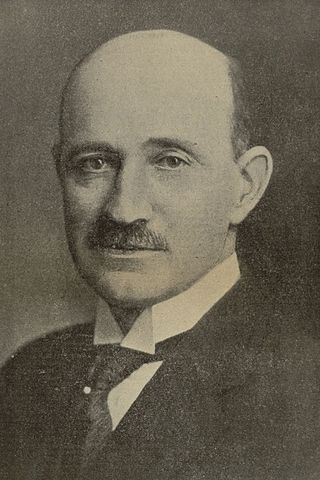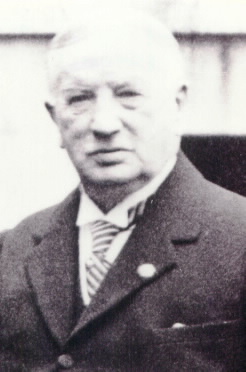
Basque nationalism is a form of nationalism that asserts that Basques, an ethnic group indigenous to the western Pyrenees, are a nation and promotes the political unity of the Basques, today scattered between Spain and France. Since its inception in the late 19th century, Basque nationalism has included Basque independence movements.

Carlism is a Traditionalist and Legitimist political movement in Spain aimed at establishing an alternative branch of the Bourbon dynasty, one descended from Don Carlos, Count of Molina (1788–1855), on the Spanish throne.
The Carlist Wars were a series of civil wars that took place in Spain during the 19th century. The contenders fought over claims to the throne, although some political differences also existed. Several times during the period from 1833 to 1876 the Carlists—followers of Don Carlos (1788–1855), an infante, and of his descendants—rallied to the cry of "God, Country, and King" and fought for the cause of Spanish tradition against liberalism, and later the republicanism, of the Spanish governments of the day. The Carlist Wars had a strong regional component, given that the new order called into question region–specific law arrangements and customs kept for centuries.

The Basque Nationalist Party, officially Basque National Party in English, is a Basque nationalist and regionalist political party. The party is located in the centre of the political spectrum.

Sabino Policarpo Arana Goiri, Sabin Polikarpo Arana Goiri, or Arana ta Goiri'taŕ Sabin (self-styled), was a Spanish writer and the founder of the Basque Nationalist Party (PNV). Arana is considered the father of Basque nationalism.

Fuero, Fur, Foro or Foru is a Spanish legal term and concept. The word comes from Latin forum, an open space used as a market, tribunal and meeting place. The same Latin root is the origin of the French terms for and foire, and the Portuguese terms foro and foral; all of these words have related, but somewhat different meanings.

The First Carlist War was a civil war in Spain from 1833 to 1840, the first of three Carlist Wars. It was fought between two factions over the succession to the throne and the nature of the Spanish monarchy: the conservative and devolutionist supporters of the late king's brother, Carlos de Borbón, became known as Carlists (carlistas), while the progressive and centralist supporters of the regent, Maria Christina, acting for Isabella II of Spain, were called Liberals (liberales), cristinos or isabelinos. Aside from being a war of succession about the question who the rightful successor to King Ferdinand VII of Spain was, the Carlists' goal was the return to a traditional monarchy, while the Liberals sought to defend the constitutional monarchy.

Marcha de Oriamendi, is the anthem of the Carlist movement. The name of the anthem stems from the battle of Oriamendi which took place in 1837 during the First Carlist War.

The Third Carlist War, which occurred from 1872 to 1876, was the last Carlist War in Spain. It is sometimes referred to as the "Second Carlist War", as the earlier "Second" War (1847–1849) was smaller in scale and relatively trivial in political consequence.

Argentine nationalism is the nationalism of Argentine people and Argentine culture. It surged during the War of Independence and the Civil Wars, and strengthened during the 1880s.
The New State is a 1935 book by Víctor Pradera. It contains a political theory, intended to reveal key political laws and to propose an adequate vision of the state.

Juan Víctor Pradera Larumbe was a Spanish political theorist and a Carlist politician.

Esteban de Bilbao Eguía, 1st Marquess of Bilbao Eguía was a Spanish politician during the dictatorship of Francisco Franco.
The end of Basque home rule or fueros in Spain was a process coming to a head in the period extending from the First Carlist War (1833-1840) to the aftermath of the Third Carlist War (1876-1878). It brought to an end the status of sovereignty coupled with allegiance to the Crown of Castile held by the different Basque territories for centuries. In the French Basque Country, home rule was abruptly suppressed during the French Revolution.

Traditionalism is a Spanish political doctrine formulated in the early 19th century and developed until today. It understands politics as implementing Catholic social teaching and the social kingship of Jesus Christ, with Catholicism as the state religion and Catholic religious criteria regulating public morality and every legal aspect of Spain. In practical terms it advocates a loosely organized monarchy combined with strong royal powers, with some checks and balances provided by organicist representation, and with society structured on a corporative basis. Traditionalism is an ultra-reactionary doctrine; it rejects concepts such as democracy, human rights, constitution, universal suffrage, sovereignty of the people, division of powers, religious liberty, freedom of speech, equality of individuals, and parliamentarism. The doctrine was adopted as the theoretical platform of the Carlist socio-political movement, though it appeared also in a non-Carlist incarnation. Traditionalism has never exercised major influence among the Spanish governmental strata, yet periodically it was capable of mass mobilization and at times partially filtered into the ruling practice.

The Traditionalist Communion was one of the names adopted by the Carlist movement as a political force since 1869.

The mottos of Francoism are mottos which encapsulate the ideals of the Francoist dictatorship. Although the regime had many ideological influences, it employed Falangism in its popular movements. Falangist ideology was easily incorporated in the creation of mottos as it is believed to demonstrate a certain reluctance towards political agendas, and to favour empiricism, taking action, and the simplification of ideas.

Queen Isabella II of Spain was barely three years of age when her father, King Ferdinand VII, died on 29 September 1833. The years of her minority were marked first by the regency of her mother, Maria Christina of the Two Sicilies, and then under General Baldomero Espartero, covering almost the first ten years of her reign, until 23 July 1843, when Isabella was declared to be of age.

Teodoro Benigno Ignacio de Arana y Beláustegui (1858-1945) was a Spanish Carlist politician. His career climaxed during last decades of the Restoration period: in 1903 he was elected to Congreso de los Diputados, the lower chamber of the Cortes, and in 1905, 1916 and 1918 he was voted into the Senate. In two separate spells of 1915-1919 and 1923-1932 Arana served as leader of the Biscay branch of Carlism. He was also known as a vehement advocate of separate legal establishments for the Basque provinces, as the author of a related pamphlet and as a promoter of Basque culture. He was the first person in Spain to send a telegram in Basque.















